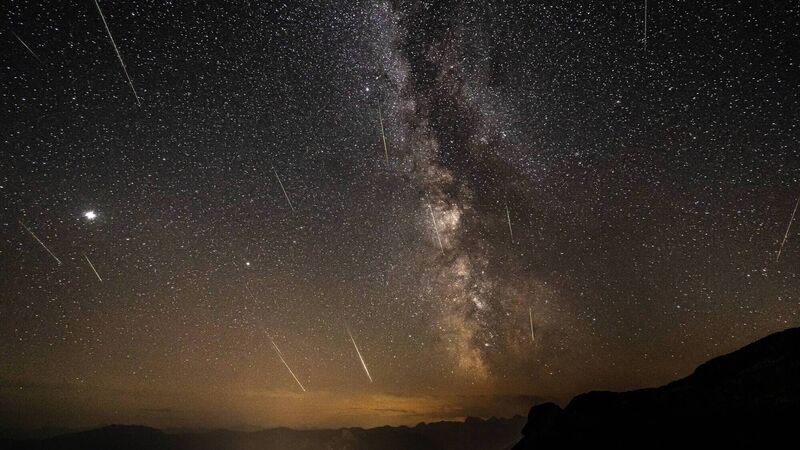Sky Matters: When, where and how to watch the Perseids meteor shower

The peak of the Perseids occurs around August 11, 12 and 13, but this year the best time to watch is a little earlier.
Try from €1.50 / week
SUBSCRIBEA full moon can be quite a sight to behold, but it can also be something of a nuisance! In August, the latter is more likely to be true as a full moon — indeed a ‘supermoon’ — will drown out all but the brightest meteors in the annual Perseid meteor shower. Meteors occur when dust-sized particles from space burn up in the earth’s atmosphere, producing a fast-moving trail of light that lasts usually for no more than a second or two. The Perseids are the result of debris ejected from a fairly large comet called Swift-Tuttle.
The earth crashes into this debris every August on its orbit around the sun. Swift-Tuttle takes 133 years to orbit the sun and right now it’s about 42 times farther away from the earth than the sun is. That means it’s also very cold and pretty much impossible to spot from the earth as the amount of sunlight falling on it is tiny and without sunlight, it’s effectively invisible.
Already a subscriber? Sign in
You have reached your article limit.
Annual €130 €80
Best value
Monthly €12€6 / month
Introductory offers for new customers. Annual billed once for first year. Renews at €130. Monthly initial discount (first 3 months) billed monthly, then €12 a month. Ts&Cs apply.
CONNECT WITH US TODAY
Be the first to know the latest news and updates
Newsletter
Sign up to the best reads of the week from irishexaminer.com selected just for you.
Newsletter
Music, film art, culture, books and more from Munster and beyond.......curated weekly by the Irish Examiner Arts Editor.
© Examiner Echo Group Limited